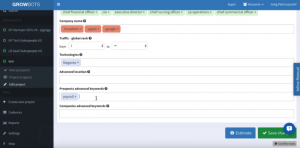— May 22, 2019
As an employer, you’re undoubtedly aware that you can claim a business expense deduction for the wages and salaries that you pay your workers, but do your employees know they can claim similar tax deductions? In 2018 alone, employees claimed more than $ 1.2 trillion dollars’ worth of deductions according to TurboTax, but there’s millions more to be had. Don’t let your team shortchange themselves in 2020 – here’s a breakdown of the 3 tax-deductible benefits that your employees should take advantage of.
1. 401(k) Plans & Individual Retirement Accounts
Eligible retirement plans are one of the most commonly overlooked tax-deductible benefits for employees. This is likely due to the fact that the funds they save by making contributions to their retirement accounts aren’t directly reflected in their annual income tax return. Instead, the tax benefits of making retirement plan contributions are evident in each individual paycheck throughout the year.
Since certain retirement account contributions are made with pre-tax dollars, employers cannot include these amounts in their taxable income for the year. With each contribution, employees’ wages that are subject to federal income tax are lowered. Furthermore, when they make contributions to their retirement accounts, their projected federal income taxes are also lowered, encouraging the likelihood that you withhold less money. The result is an increase in their average take-home pay and more money in their pocket each pay period.
2. Flexible Spending Accounts & Health Savings Accounts
As the cost of procuring health insurance has continued to skyrocket, flexible spending accounts and health savings accounts have become viable alternatives for employees hoping to self-fund their healthcare – and the tax benefits don’t hurt. While the logistics of FSAs and HSAs differ, both are ways for employees to contribute tax-free funds toward their healthcare expenses.
Similar to retirement account contributions, FSA and HSAs allow employees to put money aside for their healthcare while reducing the amount of their wages that are subject to federal income taxes. These accounts allow individuals with health insurance to set aside money for costs such as deductibles, copayments, and monthly prescriptions.
3. Educational Assistance Programs
More than ever, employees value the opportunity to develop their professional abilities. Nearly half of the current workforce stated that learning and development is the most important benefit that they consider when deciding where to work. To support this initiative, and work to close prominent skills gaps, employees who work to continue their education are eligible to deduct certain expenses. Employees who are the sole funders of their continued education, meaning you as the employer didn’t contribute any amount to their courses, must pass one of two tests. First, the education they receive must maintain or improve their skills required for their current business or trade. Otherwise, the expenses can only be deducted if they were necessary to meet a requirement of a regulation or law or an employer requirement.
Employees who are the sole funders of their continued education, meaning you as the employer didn’t contribute any amount to their courses, must pass one of two tests. First, the education they receive must maintain or improve their skills required for their current business or trade. Otherwise, the expenses can only be deducted if they were necessary to meet a requirement of a regulation or law or an employer requirement.
These eligible employees are then able to deduct a variety of expenses, including tuition, books, lab fees, transportation costs, and even costs incurred should they need to take a temporary absence from their role. There are a plethora of tax deductions and credits that employees may be applicable for depending on their specific circumstances – so many that the IRS developed an interactive survey to assist taxpayers in navigating what they’re qualified for.
There’s no better time to begin educating your employees about their 2019 return than now. Instead of rushing through their taxes last minute, arm your team with the knowledge necessary to collect all that they’ve earned this year. By leveraging this information, they can optimize their benefits packages to ensure that they’re taking advantage of all of their potential tax deductions and credits in the future.
Business & Finance Articles on Business 2 Community
(23)







